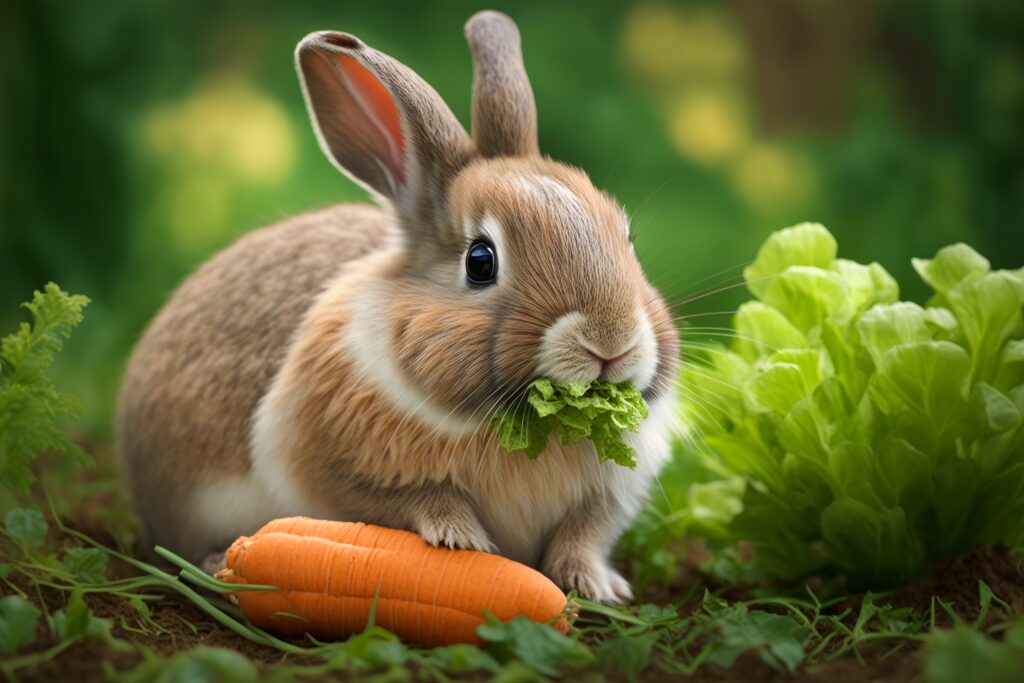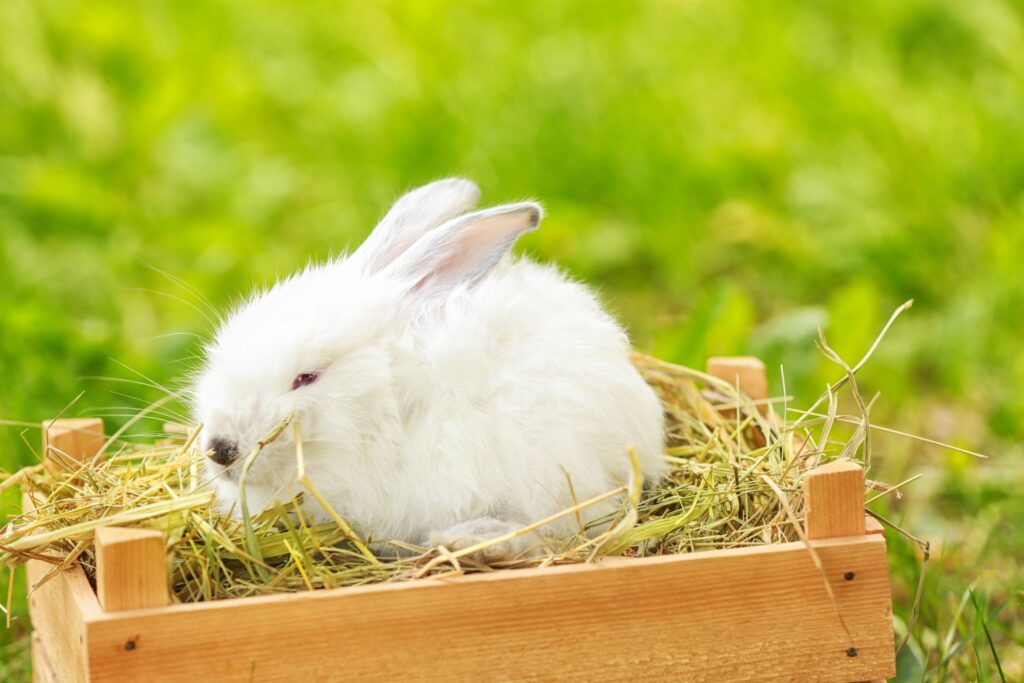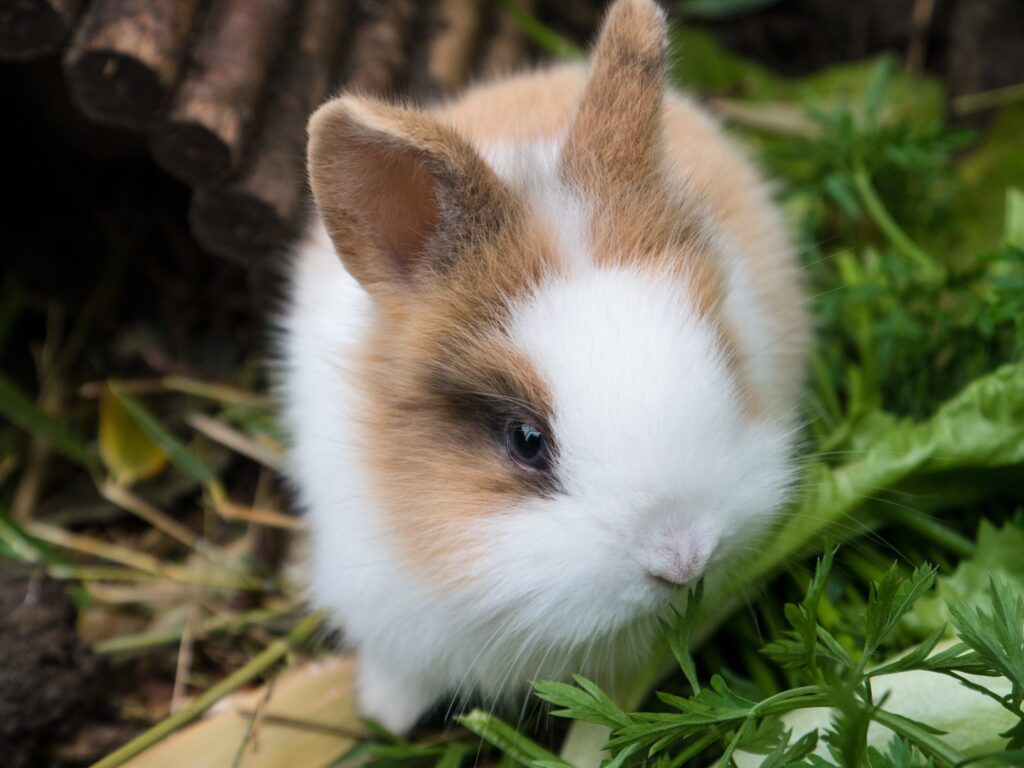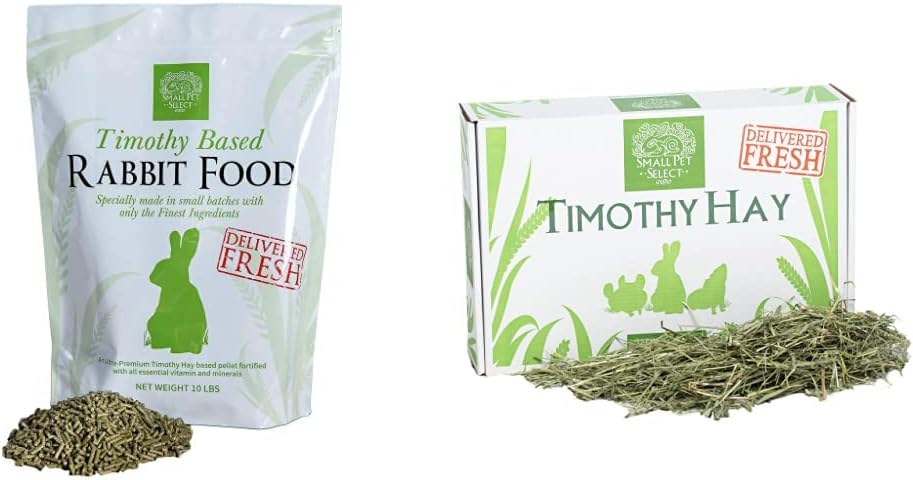How Many Times Do Rabbits Eat in a Day? A Comprehensive Guide
Rabbits typically eat multiple times throughout the day. Their diet consists mainly of hay, which they consume constantly in small amounts. On average, a rabbit will eat around 4 to 5 small meals daily, spread out over 24 hours. However, this number can vary depending on the rabbit’s age, size, and habits.

In addition to hay, rabbits require fresh vegetables and a limited portion of high-quality commercial pellets to maintain a balanced diet. While rabbits eat frequently, it is essential to monitor their food intake to avoid overfeeding and maintain a healthy weight.
Rabbit Feeding Habits
Rabbits are herbivores and have a unique feeding habit. They are natural grazers and love to eat throughout the day. Providing them with a balanced diet is essential to keep them healthy and happy.
Frequency of Feeding
Rabbits should be fed twice a day, once in the morning and once in the evening. They should have access to fresh hay at all times. Ensuring that their food and water are clean and fresh is crucial.
Amount of Food
The amount of food a rabbit needs depends on age, weight, and activity level. Adult rabbits should have around 1-2 cups of fresh vegetables daily. They should also have a limited amount of pellets, about 1/4 to 1/2 cup per day. Baby rabbits require more pellets per day, about 1/8 to 1/4 cup.
Hay is the most crucial part of a rabbit’s diet. They should have access to hay at all times. A good rule of thumb is providing one handful of hay daily for every two pounds of body weight.
Monitoring a rabbit’s weight and adjusting its food intake is essential. Overfeeding pellets can cause obesity and soft stool, while insufficient food can lead to malnourishment.
Rabbits have unique feeding habits and require a balanced diet to stay healthy. They should be fed twice a day, have access to fresh hay at all times, and have a limited amount of pellets and fresh vegetables. It is crucial to monitor their weight and adjust their food intake accordingly.
Types of Food for Rabbits
When it comes to feeding rabbits, it’s important to provide them with a balanced diet that meets their nutritional needs. A healthy rabbit diet consists of hay, vegetables, and pellets. Here’s a closer look at each type of food:
Hay

Hay is the most important part of a rabbit’s diet. It provides the fiber necessary for proper digestion and helps wear down their constantly growing teeth. Rabbits should have unlimited access to high-quality grass hay, such as Timothy, orchard or brome. The hay should make up the bulk of a rabbit’s diet.
Vegetables

Rabbits should also have a daily serving of fresh vegetables. Various leafy greens, herbs, and vegetables should be offered, such as cabbage, kale, broccoli, parsley, and mint. New types of greens should be introduced gradually to avoid potential stomach upsets. A rabbit’s daily vegetable intake should be an adult-sized handful of safe, washed leafy greens daily, ideally 5-6 different types.
Pellets

Pellets should be offered in limited quantities. A rabbit’s daily diet should consist of mostly hay, fewer fresh vegetables, and a limited number of pellets. Pellets should make up no more than 5-10% of a rabbit’s diet. Look for high-quality pellets specifically formulated for rabbits and avoid those containing seeds, nuts, or dried fruit.
Factors Affecting Rabbit Feeding
Age
The age of a rabbit plays a significant role in determining its feeding requirements. Baby rabbits need more frequent feedings and smaller portions, while adult rabbits can have larger portions and fewer feedings. According to MSU Extension, weanling meat-type rabbits will eat about 4 to 6 ounces of food per day, depending on their size. Baby rabbits should be fed twice a day or three times daily if they are underweight. You should give them a heaping cup of food for every found pound of body weight in each of these feedings.
Activity Level
The activity level of a rabbit also affects its feeding requirements. If a rabbit is more active, it will need more food to maintain energy levels. On the other hand, if a rabbit is less active, it will require less food. Rabbits kept in cages and do not have much space to move around may require less food than rabbits with more space to roam.
Health Condition
A rabbit’s health condition can also impact its feeding requirements. Sick or injured rabbits may require special diets or more frequent feedings to help them recover. Additionally, rabbits with dental problems may require softer foods to eat. It is important to monitor a rabbit’s eating habits and consult with a veterinarian if there are any concerns about its health.
Overall, providing rabbits with a balanced diet that includes hay, pellets, and fresh vegetables is important. Rabbits require up to 20% fiber and 45% carbs in their daily diet. These foodstuffs do an excellent job of satisfying those needs. Rabbits can also eat other greens, albeit in limited quantities. These animals have sensitive digestive systems and can react adversely to sudden changes in their diet.